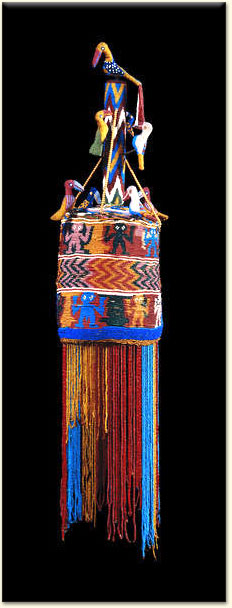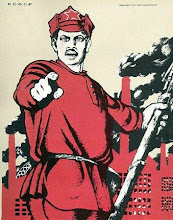Pope John XXIII, who was the impetus behind the Second Vatican Council, issued his encyclical Pacem In Terris (Peace on Earth) in April, 1963, two months before he died and 6 months after the Cuban Missile Crisis.
His openness to the world, even beyond Catholicism, left his open to attack.
The Tablet
Pope John and his critics
Peter Hebbkthwaite
http://archive.thetablet.co.uk/article/4th-june-1983/5/pope-john-and-his-critics
[...]
The second charge — that of aiding the Communists with Pacem in Terris — certainly pained him. The newspapers had linked the encyclical with his meeting with Alexis Adjubei, Khruschev's son-in-law and editor of Izvestia, which took place on 7 March. They had put two and two together and made 17. On 7 May, Mgr Loris Capovilla, his private secretary, asked him whether it would not have been wiser to have delayed Pacem in Terris until after the election (an Italian political election at the time where the Communists made gains). Pope John replied: "The doctrine expounded in the encyclical is in accord with the gospel of the Lord and in harmony with the papal magisterium of the last 60 years; the meeting with Adjubei fitted in perfectly with the general line of my ministry. I've said clearly, several times, that one could publish the transcipt of our conversation with perfect tranquillity."
The fact that the meeting with Adjubei had been secret did great harm: it gave scope for the wildest speculations about Pope John's alleged weakness and softheartedness in dealing with Communists. He felt "sharp bitterness" (pungente amarezza) as he scanned the right-wing press (including the unspeakable Ii Borghese which combined nudes with "insidethe-Vatican" stories). There was a simple way to scotch the nonsense: the conversation had been written up by Fr Alexander Kuolic Si, the interpreter: it should have been published. Why was it not published?
The plain answer — however shocking it may seem — is that the Secretariat of State did not want it published. In this last phase of his life, Pope John's orders were not being carried out. Pope John himself is our witness. On 1 March he wrote the follow ing note "for history": "The absolute clarity of my language, first in public and then in my private library, deserves to be known and not artificially withheld. I have told Dell'Acqua and Samore repeatedly that the note written by Fr Koulic, the sole witness to my meeting with Rada and Alexis Adjubei, should be published. The first section (of the Secretariat of State) does not agree, and I'm unhappy about it."
The note stutters, and Pope John, always a man of obedience, reveals his utter incomprehension of disobedience: "A desire of the pope . . . When I was nuncio or patriarch. . . When it's known what I said, and what he said, I think people will bless the name of Pope John. Everything should be carefully noted down. I deplore and pity those who have lent themselves in these last few days to unspeakable manoeuvres (giochi innomabili). Ignosco et dimitto". The last phrase, which might be translated, "I'll overlook it and dismiss it from my mind", comes from the prayers after Mass to be said by a bishop. Despite his hurt, Pope John did not harbour grudges. He appealed instead to posterity, that is, us. We must pay that debt.
Pope John wrote this note three days before Pacem in Terris had been sent to press. Its confidence in human nature was cruelly mocked by the mistrust which surrounded him. A further irony was that, although the Secretariat of State could prevent publication of the transcript of the Adjubei interview, it was powerless to halt the encyclical (which did not stop it from trying). So Pacem in Terris appeared, but without anyone knowing what had happened in the meeting with Adjubei, and so without the commentary which would have demonstrated beyond doubt that for Pope John, dialogue did not mean submission or the surrender of principle, but a readiness to talk with anyone in love.
The Secretariat of State did not oppose the Pope because it was wicked or villainous. It was looking "across the Tiber" and had a different estimate of the political consequences. If the Pope were seen to be talking in friendly fashion with a leading Communist, then it would be extremely difficult for a Sicilian parish priest, say, to excommunicate those of his flock who voted Communist. (The 1949 ban was still in force.) The late Archbishop Igino Cardinale who was at this date chief of protocol, confirmed to me that the Secretariat of State took the view that, at 81, Pope John in his naiveté no longer saw the political consequences of his acts and (though Cardinale was too discreet to add this) regarded him as a liability if not a . menace.
This misunderstanding was his final cross, a last purging. On 1 May he had a meeting with John McCone, head of the CIA. McCone, invited by the Secretariat of State, had told him about the damage which his policies were unwittingly doing to the western alliance. Pope John's only comment was: "I'm not worried by incomplete rumours that people use to impress churchmen . . . I bless all peoples and do not withhold my confidence from anyone." He could be stubborn when it came to political charity. He was greatly consoled by a telegram from the American President, John F. Kennedy, received on 18 May: "The Pope should know that the American executive deplores and believes to be unfounded the insinuations made in some political circles and certain press organs".
Pope and Politics.
And the CIA and its Military-Industrial-Lobbyist mindset.
--



















No comments:
Post a Comment